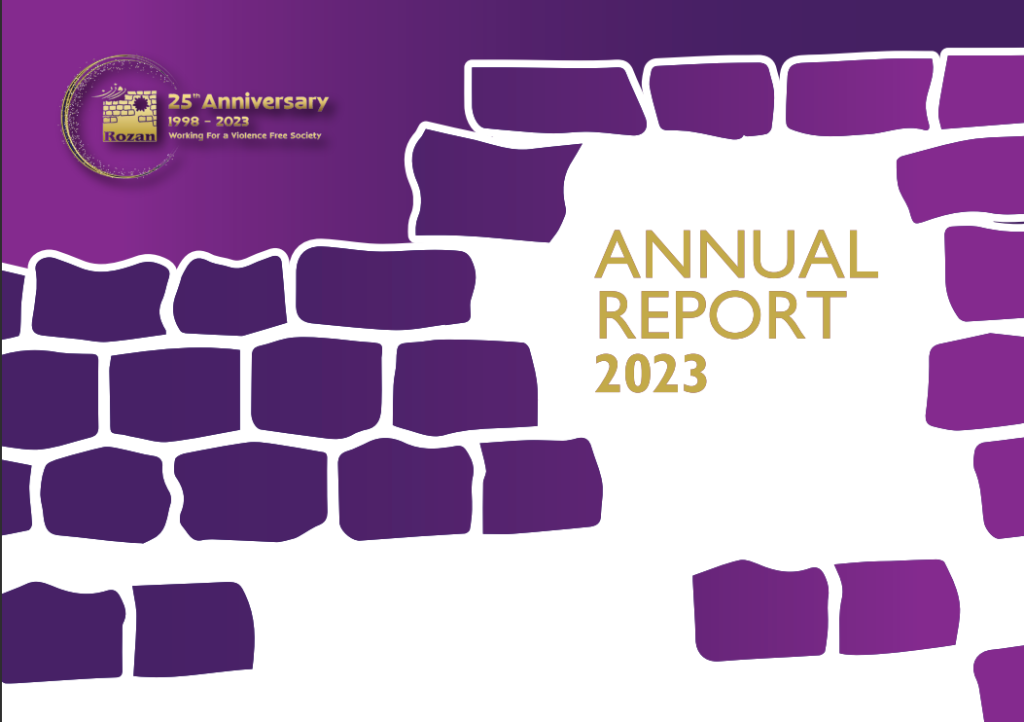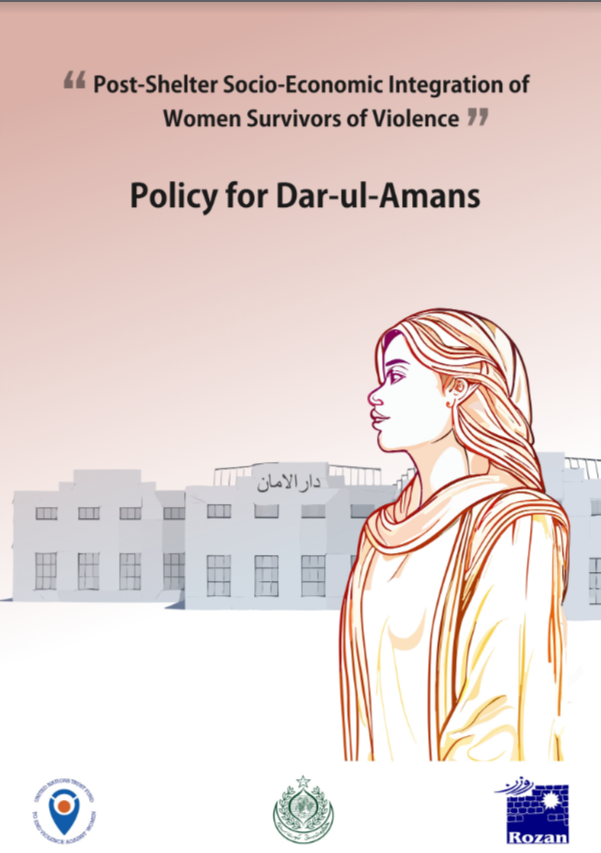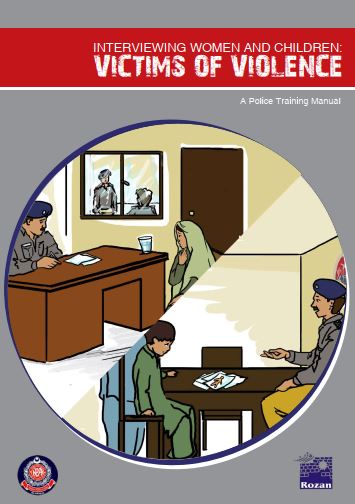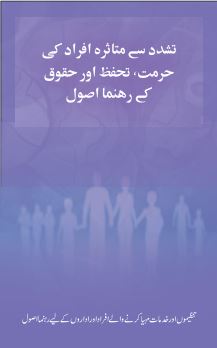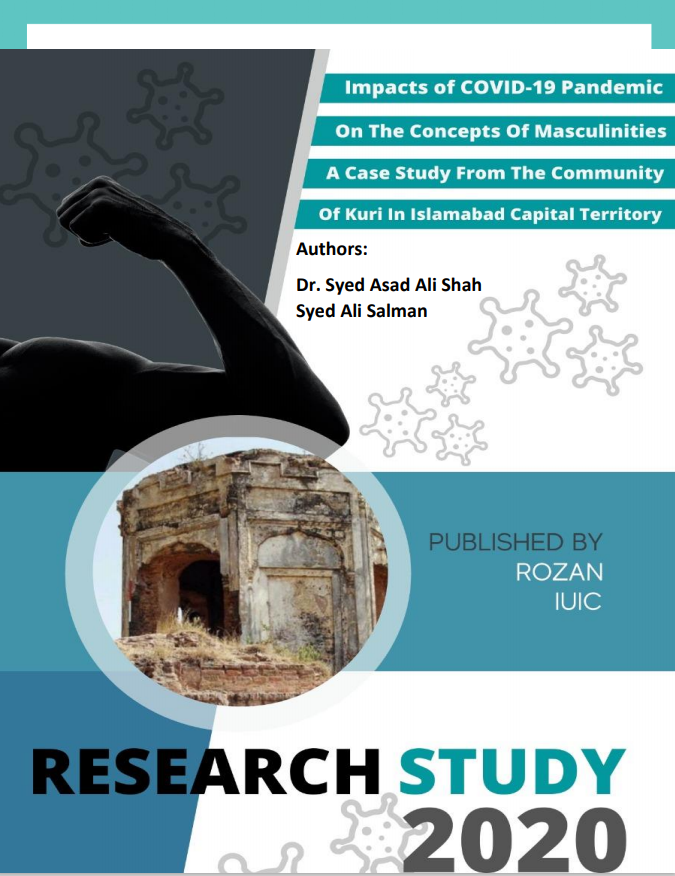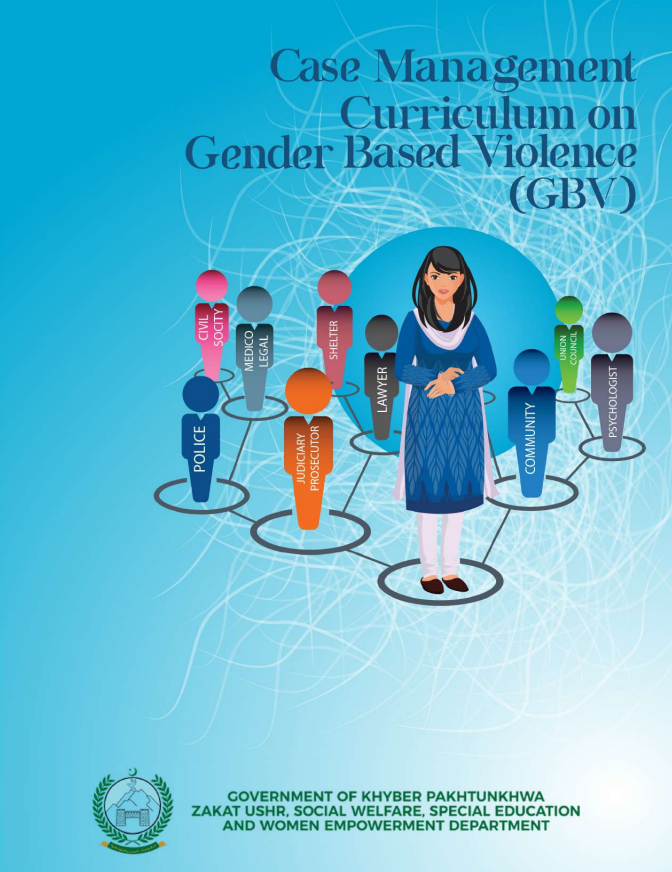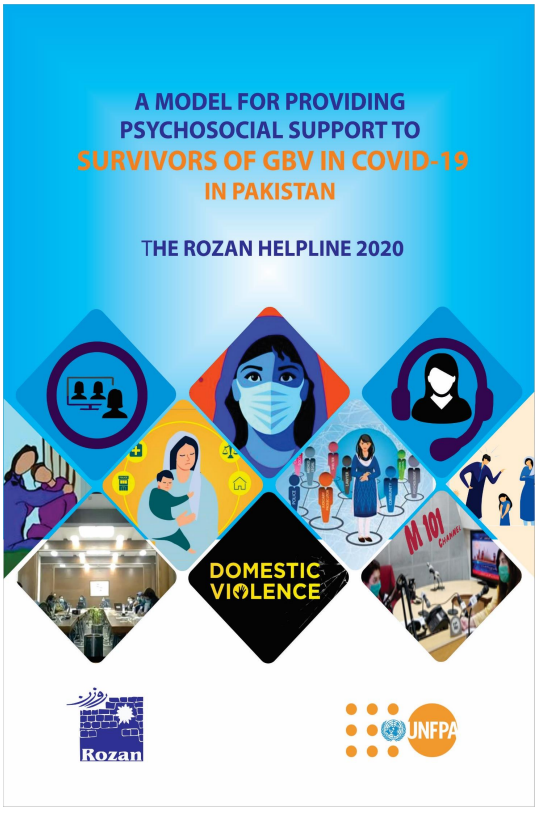- All
- Annual Report
- Masculinities
- Psychosocial Support
- Publications
- Uncategorized
- Violence Against Women
- Work with Police
Rozan Annual Report Final 2021-2022
Rozan-Annual-Report-Final-2021-2022Download
Policy for Dar-ul-Amans: Post-Shelter Socio-Economic Integration of Women Survivors of Violence
Post-Shelter Socio-Economic Integration of Women Survivors of Violence
Manual on Interviewing Women & Children Victims of Violence-English
The manual ‘Interviewing women and children victims of violence’ has been developed by the National Police Academy (NPA) and Rozan for training police officials on the techniques of interviewing women and children victims of violence. The manual also gives an overview of the issues of violence against women and children especially the myths prevalent in the society. The importance of unbiased, non judgmental attitude of the police officer in the interview process has also been highlighted. The training manual was developed by undertaking the review of existing manuals used by the NPA, manuals being used by International Police training organizations and institutes and those developed by Rozan for Police training.
Guidelines for the Protection of Dignity and Rights of Survivors of Violence – Urdu
Guidelines for the Protection of Dignity and Rights of Survivors of Violence – Urdu
Impacts of COVID Pandemic on the Concepts of Masculinities: A Case Study of Kuri Community in ICT
The Coronavirus pandemic has sabotaged not only societies but economies at large. The health
emergency casted an impact on men’s emotional and mental health as well. This research attempts to
understand the impacts of the COVID-19 pandemic on the self-image of men, especially in relation to the
prevalent cultural masculine concepts, such as bread winning, socialization, decision making at various
levels, role as the head of the household etc.
The research employed a mixed method approach to collect data in two phases: quantitative data was
collected from 120 individuals (90 males and 30 females) via structured surveys, whereas the qualitative
data was collected through three focus group discussions (FGDs) and six in-depth interviews (IDIs) from
selected key informants of the Kuri village.
The results show that almost every household in the village faced financial issues due to the COVID-19
driven lockdown. The Kuri community also reported to have faced several problems related to family
relations and socialization during that period.
People spent most of their time at home, resulting in several incidents of domestic violence, as uncovered
in the interviews and FGDs conducted for this research. Strict restrictions on social gatherings added
further to mental stress.
According to the interviews conducted in this research, half of the community believed that extending
more rights to women would result in men losing out, while 60% perceived that men and women have
achieved equality in their lives.
On the other hand, 65% of the respondents believed that women’s primary role is to manage household
chores, and almost 60% of respondents said that men should have the decision-making authority at homes
and families.
Although 49% of the respondents disagreed that women sometimes deserve to be beaten, 38% agreed to
it. Expectations from women to tolerate the violence was also found to be alarmingly high in the
community, which further endorsed the results found earlier by the study.
On the bright side, the community acknowledged the role of men in nurturing the children, i.e. the role
of the father and the mother towards the kids is equally important. People also agreed that it was essential
for men and boys to vent out their problems and worries.
An overwhelming majority of men and boys, i.e., nearly 75%, felt inferior regarding their ability to
financially support their families amidst the pandemic. Around 70% of them reported feeling depressed
at least sometimes, and an alarming 59% reported having suicidal thoughts at least once during the last
three months at the time of data collection.
Around 66% of men and boys sought health services during the Coronavirus crisis, mainly for ailments like
seasonal flu and fever. However, the researchers fortunately did not encounter any patient of coronavirus
during data collection.
The virus outbreak also affected their self-image, with a significantly high number of men and boys
convinced that their lives were of no use for others during the COVID-19 pandemic.
Almost 78% of male respondents reported seeking psychological help, primarily from friends and family
members.
Case Management Curriculum on Gender Based Violence
Zakat, Ushr, Social Welfare, Special Education and Women Empowerment Department, Khyber Pakhtunkhwa, (SWD-KP) is mandated to
work for the well-being and uplift of the community at large and especially the vulnerable groups including women. It seeks to improve the
quality of life and wellbeing of individuals, groups, and communities by intervening through policy formulation, planning and undertaking
projects/initiatives in respect of those afflicted with poverty or any real or perceived social injustices and violation of their human rights
including gender-based violence (GBV).
The Zakat, Ushr, Social Welfare, Special Education and Women Empowerment Department undertakes various social protection initiatives
through its subordinate offices, institutions, and autonomous bodies.Besides that, the statutory bodies responsible for providing protection,
assistance and shelter to GBV survivors also fall under the SWD which includes Khyber Pakhtunkhwa Commission on the Status of Women,
Dar-ul-Amaan, Helpline, Zamung Kor, Provincial Council of Social Welfare, Provincial Council for the Rehabilitation of Disabled Persons,
Khyber Pakhtunkhwa Child Protection and Welfare Commission and Khyber Pakhtunkhwa Senior Citizen Council. The Department is also
responsible for reporting on the international instruments for which Pakistan is a signatory including Convention on the Elimination of
all Forms of Discrimination against Women (CEDAW), the Convention on the Rights of Persons with Disabilities (CRPD), and the United
Nations Convention on Rights of Child (UNCRC).
Ending gender-based violence and harmful practices against women and girls (which is one of the core functions of SWD -KP) is also a
key transformative result for UNFPA, tied to both the Sustainable Development Goals as well as the landmark Programme of Action that
stemmed from the 1994 International Conference on Population and Development (ICPD) whose overarching vision, grounded in gender
equality, remains more vital than ever.
Therefore, UNFPA together with SWD – KP with technical assistance from Rozan, developed “GBV Case Management Curriculum”to support
the strengthening of the capacity of Social Welfare Officers, Helpline, Darulaman, and Crisis Centers staff on quality care standards for
GBV survivors. Case management intervention will also support multi-sectoral coordination mechanism among the different institutions
and services allowing better utilization of resources and quality care to GBV survivors. UNFPA and Social Welfare Department aim to
institutionalize the case management curriculum for the training of Social Welfare Officers.
The curriculum was pre-tested with caseworkers to ensure that the feedback from the field is incorporated to address the needs of the
caseworkers who will be using it.
Rozan Psychosocial Support Best Practices Model
When the COVID-19 pandemic first hit Pakistan in March 2020, Rozan and the United Nations
Population Fund (UNFPA) became immediately alert to the potential increase in Gender-Based
Violence (GBV) and made contact with each other to work towards preparedness and response efforts
that would be responsive to unique situation and survivors’ needs. Both recognised that providing both
direct support to survivors and strengthening systems vital to survivors’ psychosocial wellbeing and
safety needed to be addressed. This document is a narrative of this collaboration, its key considerations
and learnings and aims to contribute to the evidence base for further models of best practice to work
with survivors of GBV in emergency situations similar to the current COVID-19 pandemic.

